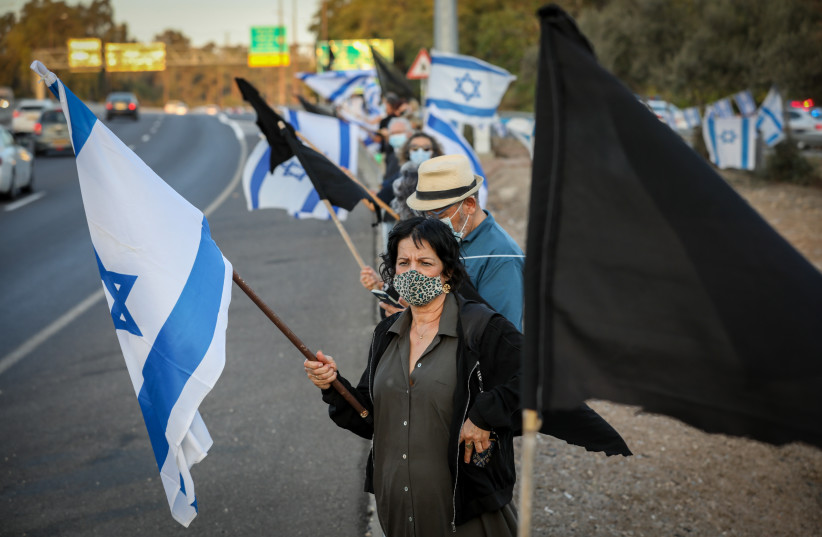A senior police official was convicted on Thursday of beating two people, one of whom a journalist, during a protest against then-prime minister Benjamin Netanyahu on August 22, 2020.
Rishon Lezion Magistrate’s Court Judge Einat Ron found that although the protesters lacked a permit, justifying the police using aggressive force while seeking to disperse the crowd was not allowed. Rather, aggressive force by police against protesters can only be used to respond to aggressive physical actions and law-breaking by protesters.
At the time of the protests, there was regular conflict between the police and anti-Netanyahu demonstrators over violating social distancing regulations during the corona pandemic, and over the extent of the protests against the former prime minister. The protests were against Netanyahu remaining prime minister while facing a trial for public corruption, as well as charges that he was using pandemic rules to try to delay the trial and unconstitutionally clamp down on demonstrations against him.
In July 2020, then-public security minister Amir Ohana was accused of trying to pressure the police into roughing up protesters to reduce their numbers and impact.
On August 22, senior police official Nissim Gueta was overseeing the police’s handling of a protest, which had no permit, moving toward the Prime Minister’s Residence on Balfour Street in Jerusalem.

The police said that the protest should be dispersed, if necessary by force, because the protesters lacked a permit and were getting out of hand, disrupting public order.
During the protest, Avichai Green complained to Gueta that those under his command were beating protesters and being too rough with demonstrators.
There is a dispute between the two on whether Gueta nastily dismissed Green, or Green got in Gueta’s face in a disrespectful and threatening way, or whether both occurred.
Regardless, Gueta struck Green twice.
Next, an unidentified protester, seeing Gueta strike Green, tore off Gueta’s anti-riot mask and tried to flee.
This unidentified protester was apprehended and arrested.
During the arrest, there were accusations that police were unduly rough with him and counter-accusations that protesters interfered with the arrest, tossing water and dirty materials at police.
Yalon Gurvitz's involvement
Journalist and videographer Yalon Gurvitz was recording the entire series of incidents, but had no interaction with the police.
When Gueta saw Gurvitz filming, he struck him twice, and also struck his video camera.
The court said that regardless of whether Green acted badly, his actions were not severe enough to warrant Gueta striking him. Moreover, the court said this was doubly true for Gurvitz, who had done nothing disruptive at all, and who should have been granted extra protection as a journalist recording a controversial event being debated by the public.
